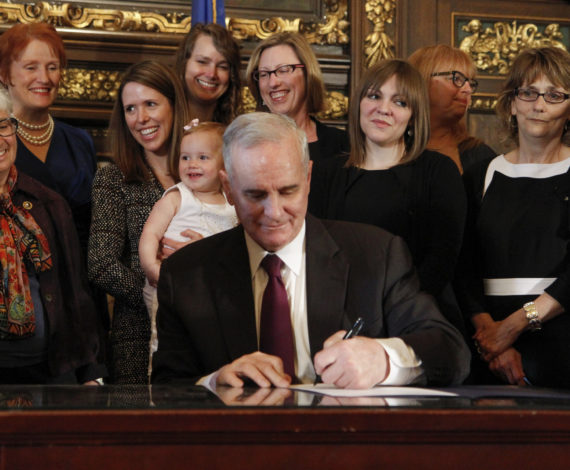
COVID through the gender lens | Minnesota Reformer
In times of crisis, we look to the people we depend on. For many of us, that means calling our parents, checking in on our friends, holding our chosen family close. As we adjust to the social distancing and stay-at-home orders designed to keep us healthy, we have had to face a new reality where the people we depend on must be kept at a distance.
NO SURPRISE: IN AN UNEQUAL SOCIETY, EFFECTS OF THE PANDEMIC FELT UNEQUALLY

In times of crisis, we look to the people we depend on.
For many of us, that means calling our parents, checking in on our friends, holding our chosen family close. As we adjust to the social distancing and stay-at-home orders designed to keep us healthy, we have had to face a new reality where the people we depend on must be kept at a distance.
The COVID19 pandemic also shines a light on the systems and structures we depend on, and it brings the things we take for granted into sharper view. We depend on hospitals to keep us healthy, our government to ensure a functional safety net to keep our communities safe, and businesses to meet our immediate needs. We depend on a society that nourishes, one that ensures we have the resources we need to thrive.
At the same time, we know that our society is built upon systemic oppression and exploitation of marginalized people — it measures the health of the economy by the peaks and valleys of the stock market instead of the number of families who can afford to put food on the table and pay the rent in the same month.
Women, people of color, people with low incomes, and immigrants fill the majority of health care roles fighting the pandemic, and are often the first to be left behind in government aid packages.
It’s undeniable that the spread of this pandemic has had a glaringly gendered impact. It’s true that men are suffering higher mortality rates from the disease, but in most other ways, women are feeling the brunt of it. Women make up the majority of COVID19-related unemployment claims in Minnesota. Women are far more likely to take on caregiving roles and need access to paid family leave. Women represent nearly two-thirds of the workforce in low-paid jobs. And the gender pay gap means that when women lose their jobs, there’s less money in the bank to rely on until they can find employment again. Pregnant people face fewer and fewer resources for births as hospitals are overwhelmed with COVID patients and shelter-in-place orders limit the ability of doulas and midwives to do their jobs.
These fault lines are becoming clearer and clearer every day as those in power make decisions about who deserves to have their rights prioritized in a crisis. Instead of attuning policy-making to the gendered effect that this pandemic has on our communities, we see many politicians launching gendered attacks by questioning whether critical health care services like abortion are essential or forcing health care workers — 76% of whom are women — to risk their lives due to a lack of personal protective equipment, and even in some places like Idaha continuing to target trans youth.
The gender inequalities and biases we are seeing are not new, but the concrete policies and barriers coming from them are. People who were already struggling to access basic health care, already worrying about paying the bills and already fighting for basic human dignity are being asked to depend on a society that was never built for them to thrive.
We know that Minnesota has the highest racial disparities in the nation. We know that women are disproportionately affected by economic recessions. We know those who have the least amount of money have the most to lose. As policy makers make quick decisions to address the COVID-19 pandemic, they must center the needs of those who are most vulnerable.
Concretely, that means recognizing that caregivers should be compensated for their labor through paid family medical leave. That means safe, legal and accessible abortion care is protected as essential health care. It means governments and hospitals invest in resources to help expectant parents raise healthy families.
It means everyone has a safe place to call home and healthy meals — and not just during times of crisis. It means we rebuild our world through law, policy and advocacy that answers the basic question: How do we take care of each other?
Most often, women and femmes are the ones tasked with answering this question.
During this time of mass vulnerability and shared dependency, however, it’s imperative that we don’t lose sight of opportunities to build a new world that answers this question without leaving anyone behind.
As we continue to track legislation coming out of state and local governments, we need to keep a trained eye out for who is included, and to hold lawmakers accountable for those who are left out. We’re in this together – we have to be.

Megan Peterson
Executive Director, Gender Justice
How We Make Change
What We Fight For
Where Barriers Occur
Related Work
